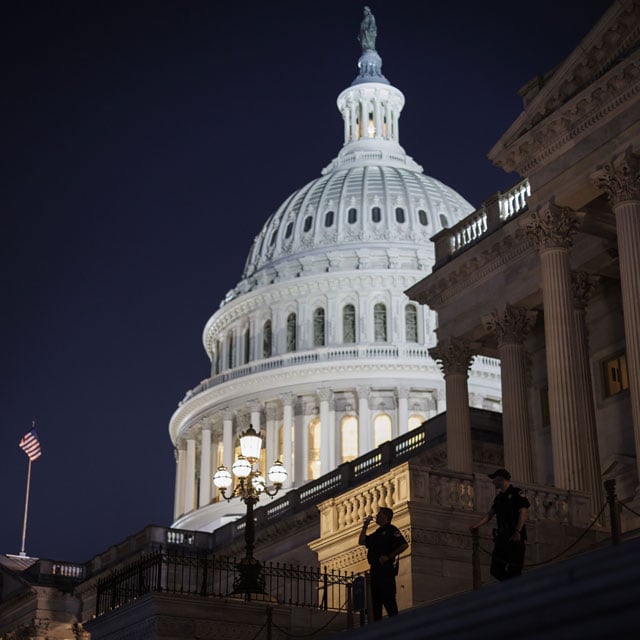Debt-Limit Deal Clears Congress, Ending Default Threat

The Senate passed legislation to suspend the U.S. debt ceiling and impose restraints on government spending through the 2024 election, ending a drama that threatened a global financial crisis.
The measure now goes to President Joe Biden, who forged the deal with House Speaker Kevin McCarthy and plans to sign it just days ahead of a looming U.S. default.
The 63-36 vote on the bill was carried by moderates in both parties, many of whom aired their misgivings about parts of the deal but were convinced that their concerns weren’t worth risking the havoc a default would unleash.
“If we do this we will not default,” Senate Majority Leader Chuck Schumer said just before the vote. “That is very, very important.”
Investors have largely judged the risk of a U.S. default as resolved and are shifting attention to other uncertainties, such as Federal Reserve policy. Futures on the S&P 500 and Nasdaq 100 edged higher after the vote. The dollar extended Thursday’s drop, while Treasuries slipped across the curve.
A hard-fought compromise reached after weeks of private talks and public finger-pointing, the legislation is a rarity in a highly polarized Washington where dealmaking has become a lost art form.
Getting it through the Senate Thursday night took hours of negotiations between the two parties, with independent Senator Kyrsten Sinema shuttling in designer sneakers between Republicans lunching on the second floor of the Capitol and Democrats on and off the Senate floor.
More Details
Ultimately, they settled on allowing uncharacteristically speedy votes on 11 amendments — all of which failed — and a pair of statements from Schumer aimed at soothing concerns about defense spending levels and other potential cuts.
Schumer made it clear that the Senate could bypass the spending caps in the bill for Ukraine, defense and domestic priorities using emergency funding, though the Republican-controlled House would have to concur.
Senate passage ends the worst standoff over the US debt in a dozen years. But it comes at some political cost for Biden and McCarthy, who have taken fire from lawmakers on their respective party’s flanks who insist too much was given away in the negotiations.
The ultra-conservative House Freedom Caucus intensified its criticism of McCarthy after more Democrats voted for the bill in the House than Republicans. Caucus members will meet next week to discuss their next steps, which could include an effort to oust McCarthy.
For Biden, the vote risks alienating well-known progressives ahead of a reelection campaign where he will rely on them to rev up enthusiasm and stump for him among critical constituencies.






